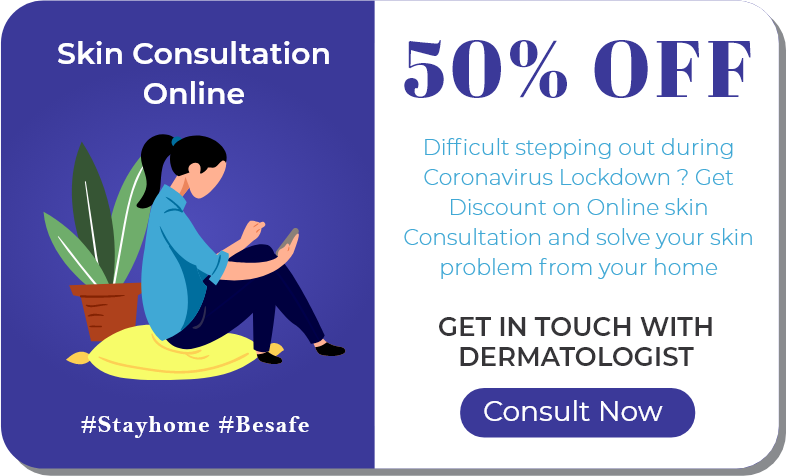Be Careful of Psoriasis

Psoriasis is such a skin condition which can get worse if patients stay under stress and depression and if they get caught the infection. So, people need to be cautious about psoriasis and should take proper treatment as soon as possible.
Psoriasis creates deep red and silver colored spots like scales on the skin. This can appear as pus-filled blisters. Though psoriasis can occur anywhere in the body skin the skin of the elbows and knees get affected more.
Psoriasis form by the rapid and excess growth of the skin cells. People think of it contagious but it is not, actually.
The red-silvery scaly patches of the psoriasis cause itchy, painful, dry rashes especially on the genitals, skin folds and scalp. The skin folds like elbows and knees get swollen and painful. The size of the scaly patches varies from small spots like flakes to wide patches. Plaque Psoriasis is a painful condition at the severe stage and it can affect the mobility of people.
What causes Psoriasis
Psoriasis is a chronic disease of the skin that is caused by genetic and environmental factors.
- Genetic factors
Psoriasis is seriously affected by the genetic factors mostly as it runs to families. Unfortunately, there is no genetic test available to analyze the genes which are responsible for psoriasis development.
- Environmental and Other Factors
The smoking condition and extreme cold and dry weather can trigger psoriasis formation. Particular infections like the strep throat and particular medicines can trigger psoriasis. The consumption of smoking and alcohol also trigger psoriasis. If the infection caused by an injury on the skin, it can cause psoriasis.
Psoriasis triggered by the Overactive Immune System
Generally, the immune system makes up cells to fight every type of infections. In the case of psoriasis, this immune system of the boy is the cause of the further steps for the formation of this skin disorder. For the psoriasis appearance, this system becomes overactive and so, immune cells move to the upper layer of the skin. It seems that the cells are healing the disorder. But the cells grow rapidly and creates scaly plaques. Over time, this immune cell widens the blood cells and these blood cells move upward which causes psoriasis cycles and makes it worse. Without any treatments, this continuous plaques formation from the immune cells cannot be stopped.
Treatments of Psoriasis
There are several treatment options to treat psoriasis. Various types of creams, lotions, ointments, and gels are available for this condition. On the doctor’s suggestions, patients can use these as soon as possible.
Besides, there are a lot of options to treat your psoriasis at your home. To control and prevent the flare-ups of psoriasis, the possible and effective measures are described below:
- Moisturizing lotions
As the symptoms can be aggravated by the dry skin, keeping the skin moisturized will be a great help. Thick and oily lotions and even the petroleum jelly can help to a great extent.
The lotions have to be applied on the patches and then cover it with a waterproof wrap like plastic wrap. Keep it like this for a few hours. Regular use will remove the scaly patches.
- Taking care of the skin
Psoriasis gets worse on the infection or injury. So, patients with psoriasis need to be cautious about infection. They should cut their nails very carefully. They should be careful during shave too. Patients should not prick on the existing patches. In the case of scales on the scalp, people should start treatment at least with topical things like tar shampoos and the topical products should also be used during washing and bathing. They should avoid acupuncture, tattoos and be careful about insect bites.
- Weather care
As the dry weather or the cold weather aggravate the condition, patients should be careful during hot summer and the coldest winter. They can use the humidifier in the dry weather.
- Avoidance of psoriasis triggering medicines
There are some medicines which can worsen the conditions. By consulting a dermatologist, patients need to avoid these medicines. These psoriasis medicines are lithium, propranolol or other beta-blocker medicines and quinidine.
- Sun as a treatment
The UV-radiation of the sun can slow the skin cell’s growth. So, sun exposure for a short time, not more than 20 minutes, is good for psoriasis.
- Minimizing depression
Many doctors point out the stress and mental depression to aggravate the psoriasis condition. So, patients should try to relieve their anxiety and tension through meditations or yoga.
- Smoking and alcohol
Though the connection between alcohol consumption and psoriasis is not proved yet, some experiences from psoriasis patients indicate that alcohol aggravates the condition when patients are taking psoriasis medicines.
- Exercise and a balanced diet
Though the connection between the formation of psoriasis and diet has not been proved, experts recommend maintaining a balanced diet which constitutes a high amount of fruits and vegetables. Maintaining a healthy weight helps to remove flares.
Generally, the effect of the treatment can be seen instantly after starting the treatment procedures. After 2 to 6 weeks of the treatment, the condition becomes more or less normal where only the redness lasts for several months. Medicines can minimize the condition but cannot remove it completely, since it can lose the effect of medicines after a while. So, checking should be continued every month since the doctor may change the medicines after certain times.





